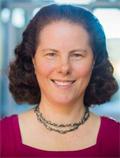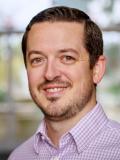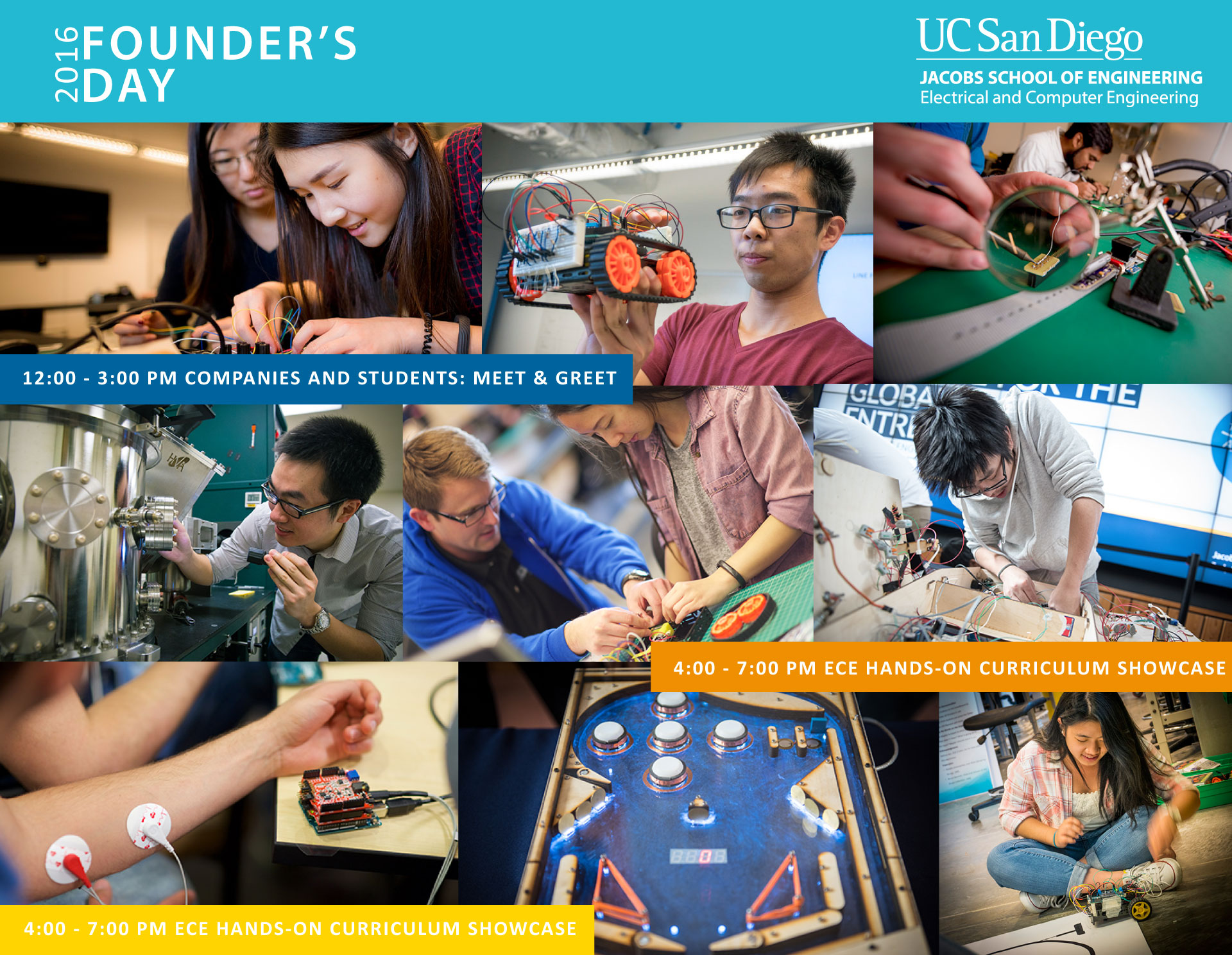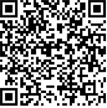Welcome to the Department of Electrical and Computer Engineering at UC San Diego!
ECE is part of the “youngest of the best”—the dynamic Jacobs School of Engineering that combines cutting-edge research with innovative teaching. Located in beautiful San Diego, ECE leverages connections across our world-class university (medical school, oceanography school, and across physical and biological sciences and engineering), as well as across San Diego’s extensive tech community and nationally. Our department is at the forefront of innovation, pushing the boundaries of what's possible in electrical and computer engineering.
At UC San Diego ECE, we pride ourselves on providing a rigorous yet flexible education that prepares our students for leadership roles in industry, academia, and beyond. Our curriculum offers a strong foundation in core ECE principles while allowing students to explore cutting-edge specializations.
Our Students: Scholars, Makers, and Hands-on Learners
Award-winning curriculum: Engineering is built upon a strong foundation of theory but also applied practice. What ECE students learn in the classroom is directly applied in real-world scenarios, providing the skills that students need to be successful in industry and internships. This powerful blend of theory and practice was recognized in 2023 when our department received the Innovative Program Award from the Electrical and Computer Engineering Department Head Association (ECEDHA).
Award-winning extra-curriculars: One of our greatest strengths is our vibrant student community. With over 500 members, our IEEE student branch is the 2nd largest in the nation! This incredibly active award-winning chapter puts on technical events (hackathons, lasercutting workshops, intro to prototyping, etc.), social events (beach bonfires, movies, gaming, roller skating, broomball, way too many to list!), professional development events (intern panels, resume workshops, professional headshots, industry networking…) and K-12 outreach events. Similarly, our Eta Kappa Nu honor society chapter is super active in professional development and social activities and won the Outstanding Chapter Award from ECEDHA. These organizations, along with our chapters of SWE, NSBE, SHPE and other orgs, provide invaluable opportunities for professional development, hands-on projects, and networking.
MakerSpaces, Tutoring Center, Research Opportunities: Our students benefit from access to state-of-the-art facilities such as the ECE MakerSpace and the Envision Maker Studio, where they bring ideas to life with advanced prototyping tools. We offer ample free tutoring through our dedicated Tutoring Center and various student organizations. Through our Summer Research Internship Program (SRIP), students at all levels get involved in research and projects, such as developing wearable sensors and designing a 5G transceiver IC, under the mentorship of our renowned faculty.
Our Faculty: Researchers, Teachers, and Innovators
Research is the lifeblood of our department. With 66 main faculty (plus dozens of active adjunct, emeritus and affiliated faculty) ECE is among the leading departments of its kind in the nation. It is built on fundamentals of applied mathematics and engineering physics, providing multidisciplinary, systems-oriented education and research in 13 core areas: Applied Electromagnetics, Applied Ocean Sciences, Communication Theory & Systems, Computer Engineering, Electronic Circuits & Systems, Electronic Devices & Materials, Intelligent Systems, Robotics & Control, Medical Devices & Systems, Medical Imaging, and Signal & Image Processing.
Our faculty and students are making groundbreaking discoveries in areas such as brain sensors and implants, robotic surgery, AI, RF MEMS, smartphone blood pressure monitoring, electro-optic modulators, ultra-low power Internet-of-Things devices, 5G/6G wireless communications, and robotic dancing (!), among many other areas. With over $38 million in annual research expenditures, we have the resources and facilities to tackle ambitious, multidisciplinary projects that have real-world impact.
ECE faculty are leaders in many research centers, including the Center for Wearable Sensors, the Center for Machine-Intelligence, Computing & Security, and the Center for Wireless Communications. ECE welcomed four new faculty in 2024: Nuria Gonzalez-Prelcic, Robert Heath, Rahul Parhi, and Noah Rubin, adding to our strengths in signal processing, communications theory and systems, machine learning, and photonics.
And You: Join Us!
As we look to the future, we remain committed to our mission of educating the next generation of engineers, conducting transformative research, and translating discoveries into technologies that benefit society. Whether you're a prospective student, industry partner, or curious visitor, I invite you to explore our website and learn more about the exciting work happening in UC San Diego ECE. We are shaping the future of technology – join us as we write the next chapter in electrical and computer engineering!

Pamela Cosman, Ph.D.
CHAIR

Patrick Mercier, Ph.D.
VICE CHAIR














.png)
.png)
.png)



